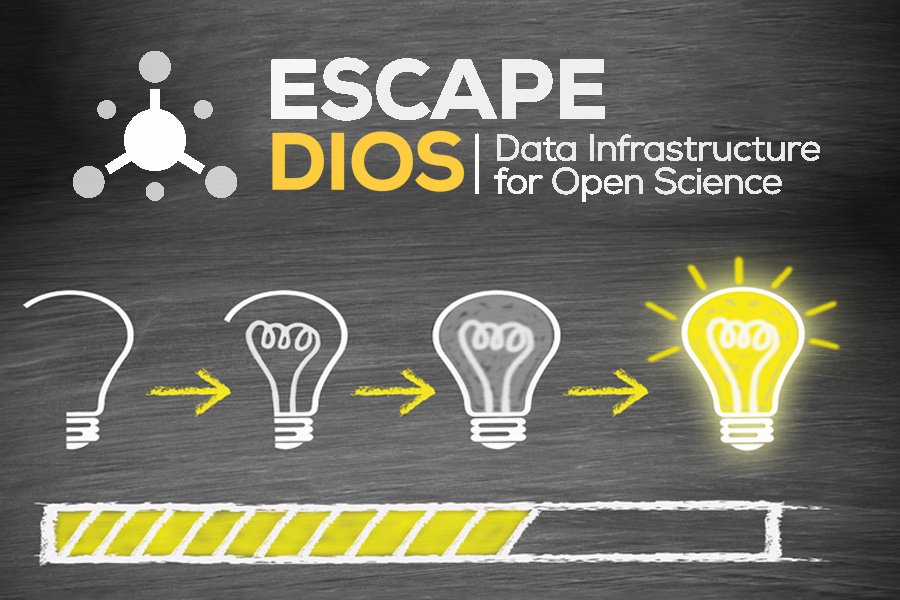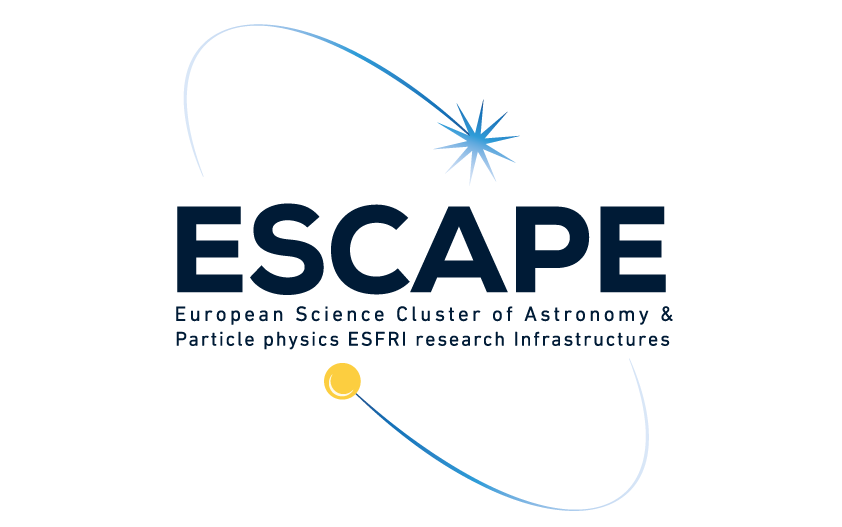

The third ESCAPE DIOS Virtual Workshop, which took place between 21-23 March 2022, made a final assessment and analysis of ESCAPE DIOS full prototype, where participants provided their feedback regarding the usage of ESCAPE DIOS. The audience was composed of 40 individuals from the European Strategy Forum on Research Infrastructures (ESFRI), research infrastructures (RI) involved in ESCAPE, project partner sites, software developers and software providers.
ESCAPE DIOS, as a federated data infrastructure of open access data, aims to enable large national research data centres to work together and build a robust cloud-like service to curate and scale up to multi-Exabyte needs. The ESFRIs involved in ESCAPE SKA, Ego-VIRGO, CTA, KM3NeT and FAIR, as well as the RIs MAGIC, ATLAS, LOFAR, CMS and LSST, shared their ESCAPE DIOS performance assessment and indicated how the tool could to help them in their future research work plan. Positive feedback was received, since ESCAPE DIOS allowed them to perform data transfer, data discovery and data analysis in higher speed. The participants also indicated some aspects where ESCAPE DIOS could be improved in the following months, related to more automatization, a friendlier setup of the overall ESCAPE DIOS architecture, compatibility with Python interfaces, amongst others.

The workshop also provided updated about the main technologies which are part of ESCAPE DIOS: File Transfer Service (FTS), Computing Resource Information Catalogue (CRIC), RUCIO and Storage Orchestration. FTS is collection of servers and clients that allow for the automated scheduling and execution of remote files transfers, while CRIC is a framework providing a centralized and flexible way to describe which resources are provided by a computing infrastructure and also how the various organisations that run on the grid use them. The Storage Orchestration is mostly related to the quality of service. RUCIO is a software framework that provides functionality to organize, manage, and access large volumes of scientific data using customisable policies. Thanks to ESCAPE, RUCIO evolved as a services thanks to the new features that were added (e.g. metadata, deployment, Jupyter RUCIO plugin, amongst others) and is now being used by communities not related to communities from High Energy Physics.

The workshop concluded with some promising updates related to synergies ESCAPE DIOS is establishing is establishing with key-initiatives in Europe. With EOSC Future, ESCAPE DIOS is fostering the “Science” component from EOSC through the Science Projects (SPs) Dark Matter and Gravitational Waves and integrate ESCAPE infrastructure (ESCAPE DIOS, ESCAPE ESAP and ESCAPE OSSR) to provide Virtual Research Environment for those same SPs.With Fenix-HPC is fostering the integration of High Performance Computing common architectures with the ESCAPE DIOS model: federated identities, common data transfer model (Data Lake+FTS+CDN) and software/code integration. With CS3MESH4EOSC, ESCAPE DIOS is extending the data lale functionality from Big Data to end-users. From September 2022 ESCAPE DIOS will prototype an interdisciplinary Digital Twin Engine, that is, a data lake solution with automated management of data locality and data federation across disciplines.

DOWNLOAD THE PRESENTATIONS AND VIDEO RECORDINGS FROM ESCAPE DIOS VIRTUAL WORKSHOP
Views
46,753

